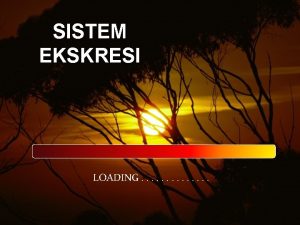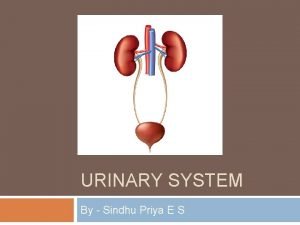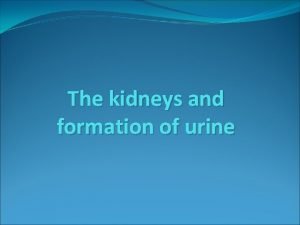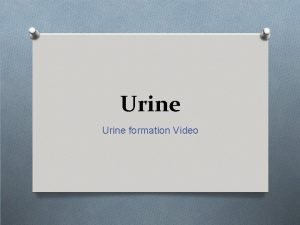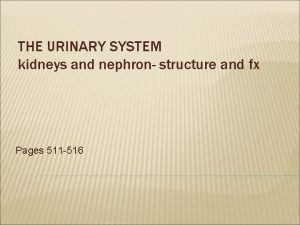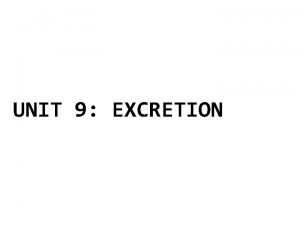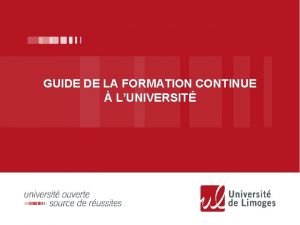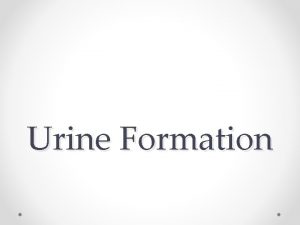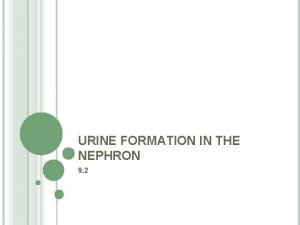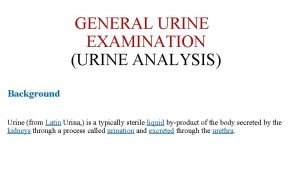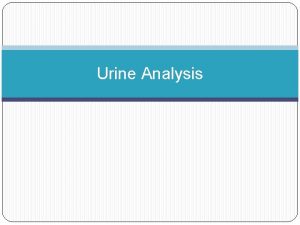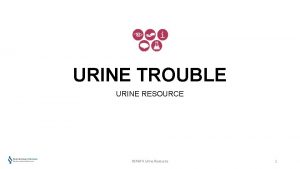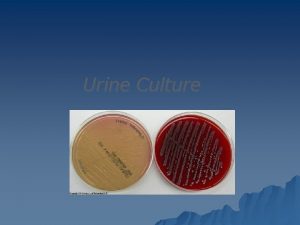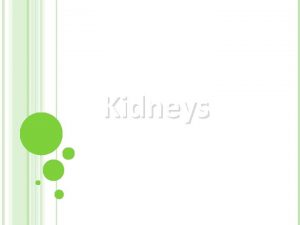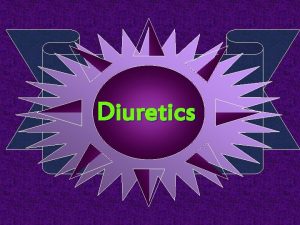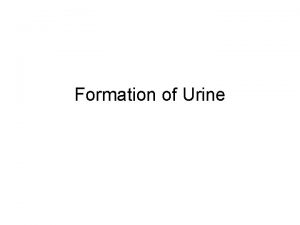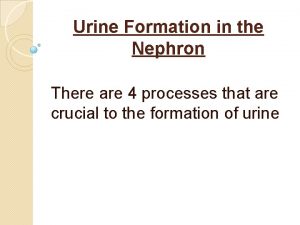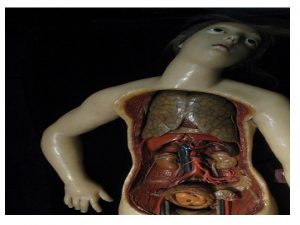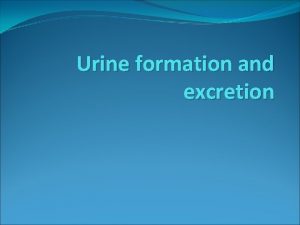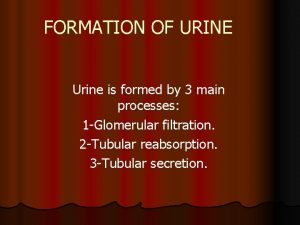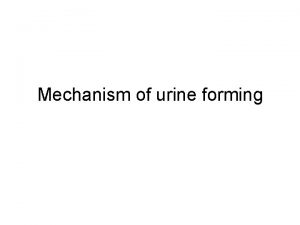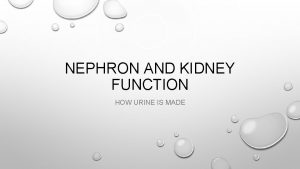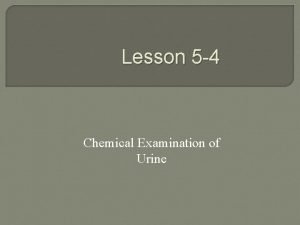Urine Formation Review of nephron structure The Nephron




















- Slides: 20

Urine Formation

Review of nephron structure

The Nephron glomerulus efferent arteriole proximal convoluted tubule blood distal convoluted tubule blood afferent arteriole Loop of Henle

The Nephron - Most components of the nephron are within the cortex.

Review of Nephron Structure

Glomerulus Structure

Normal URINE n n n n 95% water Urea Uric acid Amino acids (trace) Electrolytes (NA, K, H, Cl) Urochrome =yellow pigment Kidney filter 180 L/Day Urine produced @1. 8 L/day

Abnormal URINE n n n n RBCs- popped vein or artery in kidney WBCs- indicate infection Glucose- lack of insulin to move glucose into muscle Increased amt. of proteins- serious problem Crystals/kidney stones- calcification, formed in renal pelvis Ketones- poorly controlled diabetes, starvation Microbes drugs

9

Steps to Urine Formation 1. Glomerular filtrationwater and other dissolved substances are filtered out of blood and into glomerular capsule Filtrate- liquid filtered out of capillaries and passes through nephron

Tubular reabsorption and Tubular secretion

Steps to Urine Formation 2. Tubular Reabsorption- taking needed substances from the filtrate and transferring them back into the blood n Occurs in PCT, LOH, DCT n Passes substances from tube to blood via osmosis and active transport n Reabsorbs water, glucose, amino acids, electrolytes, urea, uric acid, protein


Steps to Urine Formation 3. Tubular Secretion- substances move from blood into the nephron and enter filtrate, larger substances n Occurs in PCT, LOH, DCT n Wastes n electrolytes n water n drugs n H ions, penicillin, ammonia, K n Happens faster than filtration

Tubular reabsorption and Tubular secretion

Control of Urine Formation At the same time as tubular absorption takes place in the PCT, tubular excretion is also occurring in the DCT.


Left Side Assignment n n LEFT SIDE Assignment- Draw a flow chart of the pathway that filtrate/urine takes from the blood and out of your body. (Start with blood glomerulus…………. . out of body https: //www. youtube. com/watch? v=qx b 2_d 9 il. Ew

Path of Urine n n n n Glomerulus PCT Nephron loop (LOH) descending limb Nephron Loop (LOH) ascending limb DCT Collecting duct Renal Papilla Minor calyx Major calyx Renal pelvis Ureter Urinary bladder urethra

Factors that can affect the filtration rate 1. Diameter of the arterioles (both afferent and efferent) 2. Permeability of the membrane of the glomerulus 3. Obstruction of the flow of urine.
 Dari hasil tes urine ternyata pak amir mengandung glukosa
Dari hasil tes urine ternyata pak amir mengandung glukosa Kdigo aki classification
Kdigo aki classification Introduction of urinary system
Introduction of urinary system Function of nephron in points
Function of nephron in points Slidetodoc.com
Slidetodoc.com Urine formation
Urine formation Urine formation video
Urine formation video Cortical radiate artery
Cortical radiate artery Adh act on
Adh act on Formation initiale vs formation continue
Formation initiale vs formation continue Hát kết hợp bộ gõ cơ thể
Hát kết hợp bộ gõ cơ thể Slidetodoc
Slidetodoc Bổ thể
Bổ thể Tỉ lệ cơ thể trẻ em
Tỉ lệ cơ thể trẻ em Chó sói
Chó sói Chụp tư thế worms-breton
Chụp tư thế worms-breton Chúa yêu trần thế
Chúa yêu trần thế Các môn thể thao bắt đầu bằng tiếng đua
Các môn thể thao bắt đầu bằng tiếng đua Thế nào là hệ số cao nhất
Thế nào là hệ số cao nhất Các châu lục và đại dương trên thế giới
Các châu lục và đại dương trên thế giới Công của trọng lực
Công của trọng lực
